Search Engine Optimization (SEO) is a growing and changing field, and 2025 is set to bring essential changes.
You know, with advancements in artificial intelligence (AI), user behavior shifts, and the rise of new search platforms, SEO professionals must adapt to stay competitive.
In this blog, we will look into the latest SEO trends in 2025 and beyond, as well as their impact on search rankings and valuable strategies for optimizing your website.
Dig Deeper to know in detail!
Latest SEO Trends
SEO trends shape how content is discovered and ranked on search engines.
Staying updated ensures businesses remain visible in search results, driving organic traffic and conversions.
Companies that fail to adapt risk losing search visibility, leading to decreased website traffic and revenue.
1. AI Integration in Search Result
AI-generated summaries and search enhancements are transforming how search engines present information.
Features like Google's AI Overviews and tools such as ChatGPT offer immediate answers, reducing the need for users to click on multiple links.
How To Optimize Content for AI:
- Use structured data to label your content clearly so AI can understand and categorize it better.
- You want to write clear and direct answers to common questions to increase the chances of your content being featured in AI overviews.
- You should write in a natural, conversational tone using everyday language to match user queries and improve AI selection.
Based on Seoprofy, 86% of the SEOs were include AI in their stratgies. Aslo 35% of the organisations are creating AI-driven content strategies for SEO
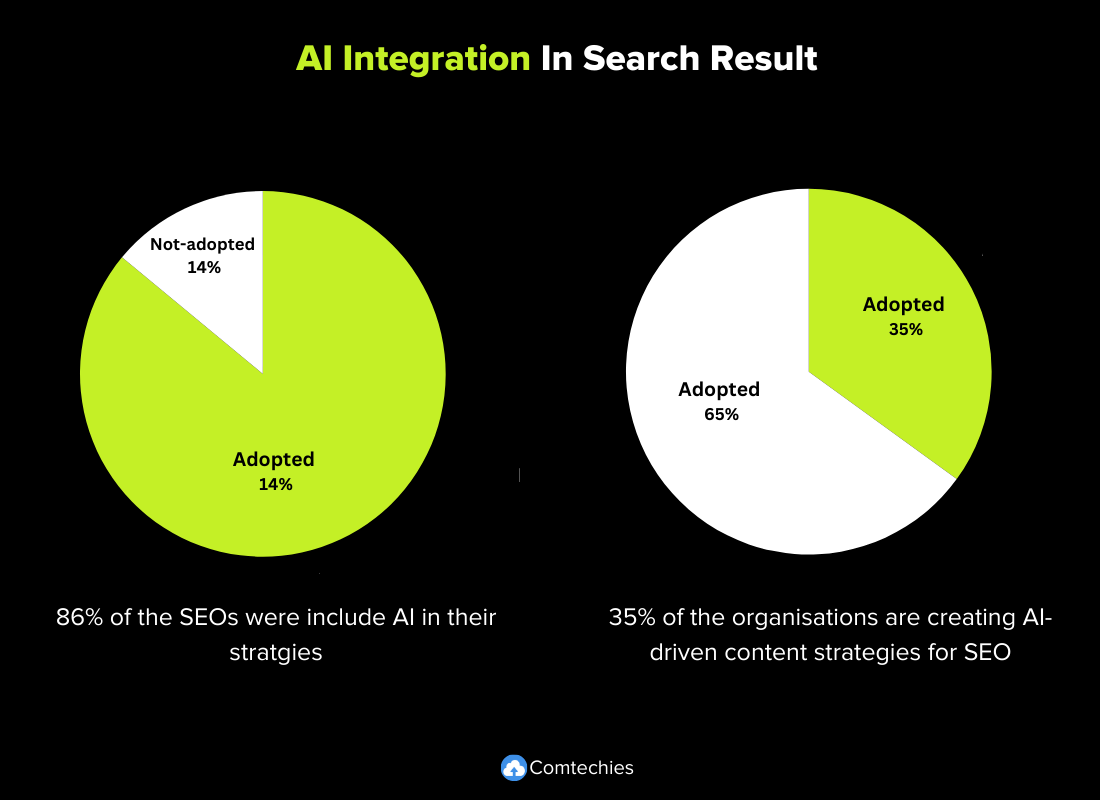
2. EEAT (Experience, Expertise, Authority, Trust)
This is the main factor for ranking your website or blog in SERPs.
Google prioritized content that shows Experience, Expertise, Authority, and Trust (EEAT), particularly in niches like finance, health, legal, etc.
EEAT ensures that you have written high-quality, well-researched content, which gives a signal to Google and has a high chance of ranking.
If you reduce the wrong information, then it will improve the search experience.
Here are 8 SEO tips that you need to know in today's strategy change.
3. AI-Powered Search and Google’s SGE
With AI-driven search becoming mainstream, Google’s Search Generative Experience (SGE) is changing how results are displayed in SERPs, and AI-driven search is becoming common now.
Instead of traditional links, Google now provides AI-generated answers, reducing the need for users to click on websites.
It is affecting the organic traffic of websites. So, you need to adopt for SGE. AI-generated responses may limit organic traffic for some keywords.
So, SEO professionals must optimize content to be featured in AI snapshots.
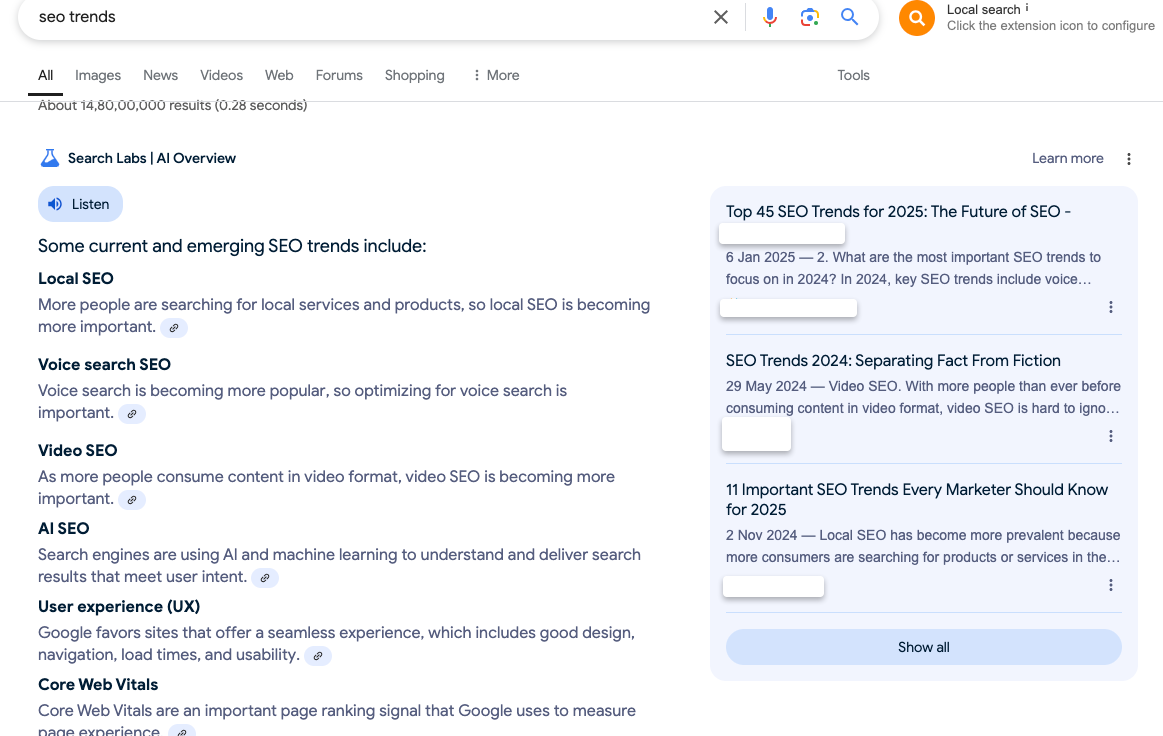
If you want to adopt this change, do the following things.
- Optimize for long-tail conversational queries that align with AI-generated results.
- Focus on answering user queries directly, correctly, and simply.
- Structure your content to help Google understand your content better.
For 86.83% of all search queries, Google AI overview shows a answer
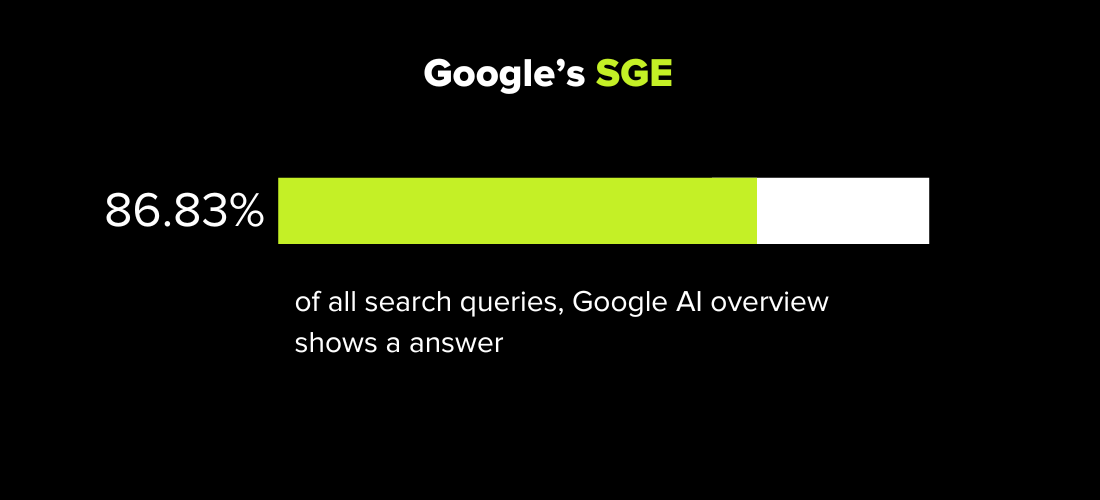
4. Content Optimization for Voice Search
Most of them are using voice search from younger to older people.
So, the rise of smart assistants (Alexa, Google Assistant, Siri) and even ChatGPT have voice assistants. Voice search queries are typically longer and more conversational.
If you want to be in voice search, you should answer the user queries directly because Google prioritizes direct answers.

You should structure your content using schema markup to increase voice search and Structure content using schema markup to increase voice search and use natural language and FAQs in your content for visibility
Backlinko identified that 40.7% of the voice search are taken from the features snippets.
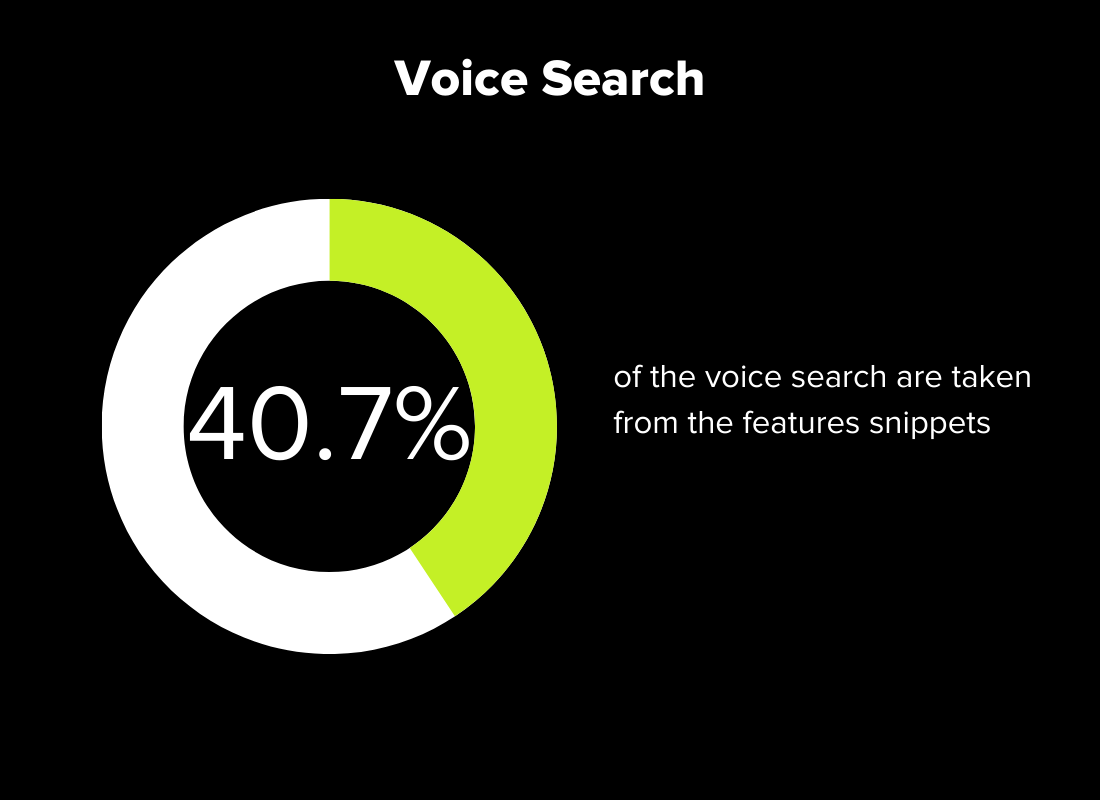
5. Video SEO
Video SEO is the practice of enhancing video content to improve its visibility and ranking on search engine results pages (SERPs).
As video consumption continues to rise, optimizing videos has become crucial for reaching a broader audience.
Short-form video platforms like YouTube Shorts, Instagram Reels, and TikTok dominate user engagement, and Google ranks video content higher in SERPs.
The below image is an example of Google ranking video content at the top of SERPs. Video snippets are increasingly featured in Google search results.
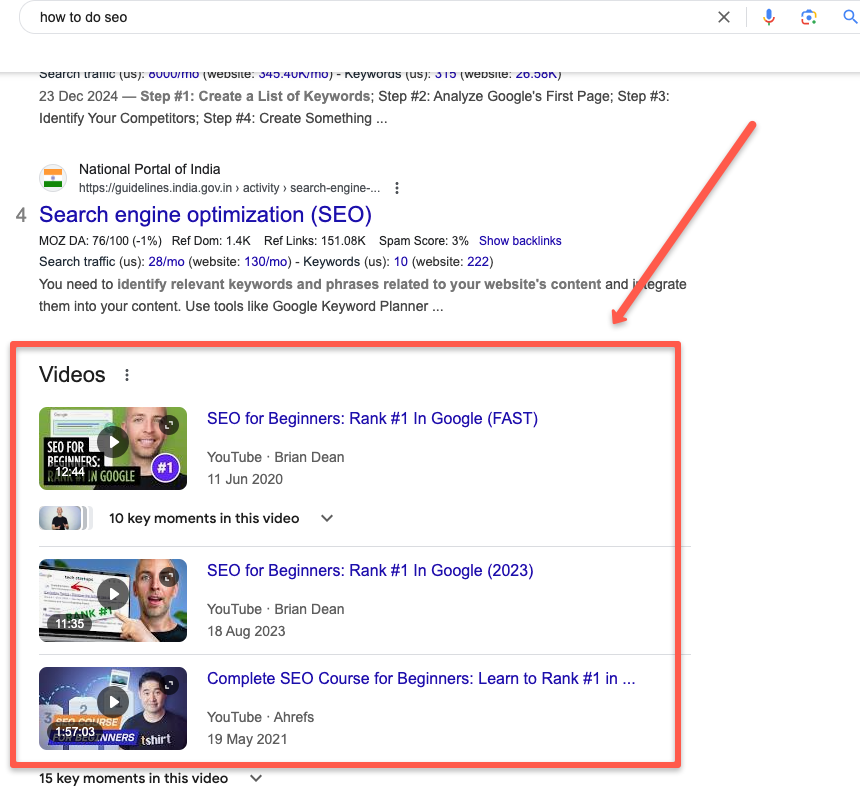
If you want to adopt this change, create a YouTube with schema markup to increase search visibility and optimize with SEO-friendly titles, descriptions, and more.
6. Core Web Vitals and User Experience (UX) Continue Growing
Core Web Vitals (CWV) is a metric that Google introduced to measure and improve website user experience (UX).
CWV focuses on three features, such as page speed, interactivity, and visual stability, which directly impact users' views of a website's performance.
This is very important because poor UX leads to lower rankings and might have high bounce rates. So, faster and more user-friendly websites will be liked by Google and help to rank higher in search results.
So, keep your website easy to access, improve page speed by optimizing images and using a CDN, and also ensure your website works well on mobile.
Improving Core Web Vitals improves SEO, user engagement, and conversion rates.
7. User-Generated Content (UGC)
User-generated content(UGC) is created by the user rather than the brand.
UGC has become a crucial factor in modern SEO strategies. Google prioritizes fresh, authentic, and valuable content.
UGC, such as reviews, comments, forum discussions, social media posts, and community-driven blogs, can mainly impact search rankings and user engagement.
UGC such as,
- Product reviews and ratings (e.g., Amazon, Trustpilot)
- Blog comments
- Social media posts, shares, and mentions
- Community Q&A
- User-submitted videos and images(e.g., Instagram, YouTube, TikTok)
The future of UGC in SEO and with the rise of AI-generated content, Google values authentic human touch even more.
And you know that Reddit and Quora are gaining importance in search results.
8. AI Tools in SEO Workflows
More SEO professionals are using and adapting to AI tools to create content for SEO and using other tools as well, which makes the work simple and quality within a few hours.
Even though, I also started using AI tools for my SEO effect and strategies.
For example, take Semrush.
Semrush shows the potential traffic keywords for the website keywords that you're tracking.
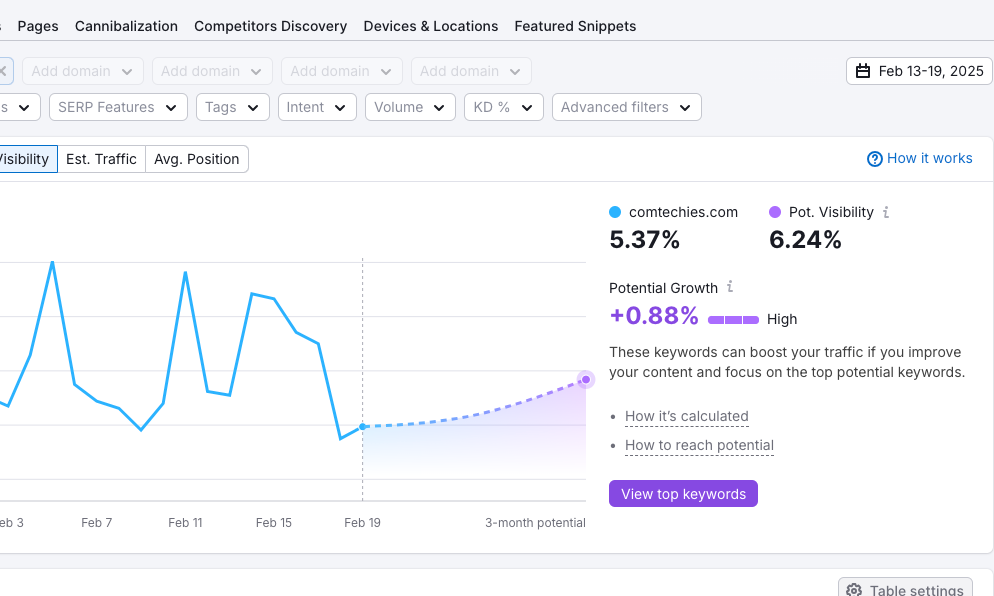
Also, Semrush generates content using Semrush Contentshake AI and Semrush Copilot AI to analyze your website's SEO performance.
Other Best AI Tools:
- Surfer SEO - It's for SEO content optimization.
- Jasper AI - AI-assisted content creation.
- Frase.io - SEO content optimization and generation
- Content At Scale - Content generation tool
SEO in 2025 and beyond will be AI integration with human expertise. If you don't use AI in your SEO workflow, the other one who uses AI tools will go ahead of you, and they get more job opportunities.
9. Zero-Click Searches Changing SEO Strategy
Ranking #1 in SERPs but not getting clicks, then this is the reason.
Zero-click searches are affecting our website's organic traffic.
This means that users are not clicking the website link because Google gives a direct and straightforward answer in its AI overview.
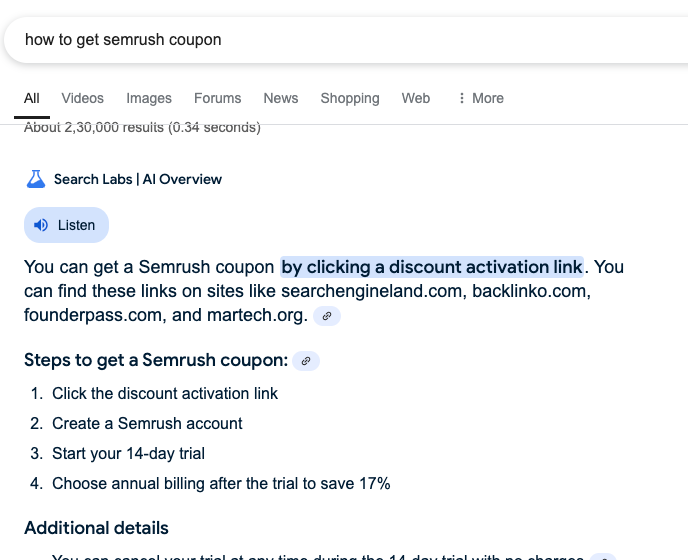
Google AI-driven features such as featured snippets, knowledge panels, and Search Generative Experience (SGE)
So, SEO professionals need to change their strategies and adapt to this trend.
Here are 10 SEO best practices, which may be useful.
According to Search Engine Land, around 60% of users are ending search with zero link clicks.
10. Generative Engine Optimization(GEO): The Future of SEO
Optimizing for GEO is a really important thing for SEOs and websites.
SEO ranks by keywords and backlinks, but GEO ranks by intent-driven content and is used to rank on Google AI overview.
Because user searches are changing, traditional SEO ranks on Google’s first page, which is a win-win situation.
Now it has changed, and the focus appears on the Google AI-generated answer.
If you want to appear on the AI overview, your content should be structured so that AI can easily understand.
People are asking full questions rather than typing short keywords.
So, GEO optimization is a must for websites.
Read More: What is Generative Engine Optimization(GEO): Explained
Conclusion
Search engines have changed, user behavior has changed, and AI developments will impact SEO and beyond.
Traditional SEO strategies need to change because of advances in voice search, zero-click searches, and AI-powered searches.
SEOs need to remain competitive by focusing on AI-driven optimization, structured data, user-generated content, and improved user experience.
EEAT, video SEO, GEO, and core vitals will continue to be important factors for search rankings.
There will be an advantage for those adopting AI in their SEO process.
Here are the latest digital marketing trends, which will help you stay ahead of competitors and align strategies accordingly.
If you have any doubts about this blog, drop them in a comment!

